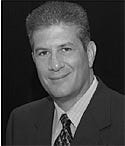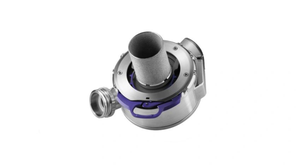Originally Published MDDI May 2006 News Trends
May 1, 2006
News Trends
|
Al LoBiondo told Congress that GPO self-regulation needs more time. |
For the fourth time in as many years, the Senate Judiciary Antitrust Subcommittee held a hearing on the alleged anticompetitive practices of group purchasing organizations (GPOs). As expected, GPO advocates testified at the March 15 hearing that reforms initiated by that industry are going well, while Mark Leahey, executive director of MDMA, testified that the GPO industry's self-imposed reforms are not working. MDMA represents mostly smaller device companies. It has pushed for GPO reforms for years, alleging that the largest GPOs often refuse to purchase better technologies from smaller manufacturers.
Leahey told the committee that the reforms from within the GPO industry have not fixed the problem, and that Congress should take action. “GPOs continue to bundle unrelated products and companies, execute long-term sole-source contracts, award no-bid contracts, collect excessive fees, and police the markets for the dominant vendor companies in a way that excludes innovative, cost-effective technologies,” he testified.
He cited two audits from the Office of Inspector General (OIG) as evidence that problems remain. “The results were staggering: [OIG] found that six GPOs collected $2.3 billion in fees and their operating expenses were a whopping $725 million. That means GPOs collected in excess of $1.6 billion in fees, and they don't manufacture products or distribute products.” Although the excess fees are supposed to go back to member hospitals, OIG found that GPOs kept almost $500 million for themselves, including for use in for-profit business ventures, Leahey said.
He also cited cases where dominant vendors paid “administrative fees” of between 9 and 15.5% in exchange for exclusive contracts. Because GPOs “are prisoners to the fees,” they can't help but enter into sole-source relationships, he said. The solution, he said, is for Congress to eliminate the “safe harbor” provision that exempts GPOs from certain antitrust laws.
The Health Industry Group Purchasing Association (HIGPA), the trade group for GPOs, counters that reforms have promoted fair competition and cost savings. It launched the Health Group Purchasing Industry Initiative, whose coordinator, Richard Bednar, also testified at the hearing.
Bednar said Leahey's testimony “fails to disclose any detail in support of his sweeping allegations; much of what he alleged occurred years ago.” The initiative, he said, “holds strong promise for success and deserves the chance to prove its effectiveness in assessing competition and quality healthcare products and services.”
Al LoBiondo, HIGPA's chairman, asked Congress to give the initiative time to work. “Creating a new set of government regulations and a new bureaucracy to oversee [GPOs] is not the right course for Congress to take,” he said.
The initiative requires participants to
• Create and adhere to a written code of business conduct.
• Train all employees about their responsibilities under the code.
• Make both high quality of care and cost-effectiveness goals.
• Work toward an open and competitive purchasing process that is free of conflicts of interest.
• Share best practices with each other at least once a year.
• Be accountable to the public.
Copyright ©2006 Medical Device & Diagnostic Industry
About the Author(s)
You May Also Like

.png?width=300&auto=webp&quality=80&disable=upscale)

